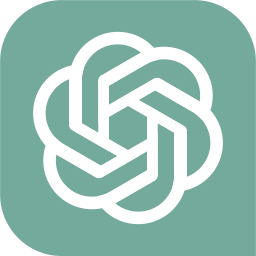In the second of our academic writing-themed posts during #AcWriMo this year, Dr Lizzie O’Connor, Postgraduate Community Engagement Manager in the University Graduate School, acknowledges that we all struggle to write at times, and suggests some strategies to overcome this.
Writing is one of the most important parts of our academic lives, but it can also be one of the most fraught. Dorothy Parker’s words that joy comes not in writing, but in having written, can ring very true as we stare at a blank screen or an unedited paper for hours on end, waiting for the motivation to start, continue, or finish our writing.

Many of us have an ‘ideal’ writing practice in our mind, such as daily writing targets, a fluent style, or time spent writing, and many of us see this ideal defeated by procrastination, lack of confidence, distraction. It can leave us feeling disappointed, frustrated, and even ashamed, which feeds into a cycle of worrying about our writing and – crucially – not fully engaging with our writing practice. What techniques can we employ to overcome these blocks, and build good writing habits? What stops us from writing in the way we’d really like to?
Silencing Our Inner Critic
We all have an inner critic, and for many of us this critic comes out most fiercely when we are trying to write. The inner critic will tell you that your writing is terrible, that none of it is good enough in quality or quantity, and becomes the main culprit for our procrastination. Even great writers struggle with this: when Marlon James won the Booker prize, he attributed his success to getting up earlier than his inner critic.
One of the most powerful techniques to manage the inner critic is to confront and recognise this sabotaging voice, rather than following the impulse to ignore it or stop writing altogether. I like the following suggestion from best-selling author Cathy Rentzenbrink to talk to your inner critic in order to disarm it:
Being curious about it or getting to know it can help. […] Put ‘What do you want?’ at the top of the page and just let your hand move. If you find out the motivation you can offer some reassurance. If we know its intention, we can say, ‘Thank you. My today self no longer needs you to protect me.’ Or you can say, ‘I know you are trying to help, but when you hit me over the head with a stick and tell me I’m rubbish, it paralyses me and then I can’t get stuff done, so could you be a bit nicer?’ Or you can imagine yourself locating the volume switch in your head and turning it down.
Target-setting and Procrastination
We often accuse ourselves of laziness when we procrastinate, but like the inner-critic, procrastination is more often an anxiety-based response: your brain shying away from a task that feels frightening, is overwhelming, or that has high stakes.
You’ve probably heard of target-setting as a technique to overcome procrastination. It’s something the Research Skills Team use in their in-person Shut Up and Work sessions, and that we use in the University Graduate School’s online version.
A method I used in writing my own PhD thesis was setting anti-targets: writing targets so low in effort and ambition they scraped the bare minimum of what I could write each day, such as, say, writing 300 words. It worked because it was so unintimidating: I could write freely, and in my busiest days could always squeeze it in, keeping up a momentum of daily writing. There was no voice in my head berating me for taking a lunch break, or daydreaming, or worrying. It set a positive pattern of self-worth: instead of starting the next day feeling like a failure because I didn’t meet my targets or wasn’t productive enough the day before, I could start it positively, feeling like a success. Feeling as though I could write and could accomplish, I did. And those 300 words added up more than you would think!
Ultimately, the only way to build a writing practice is to write. It’s a vital part of our work as academics, but also a lifelong skill in expression and the process of drafting. The tips above rely wholly on self-compassion: take the pressure off, be kind to yourself, get words (any words! Terrible words!) on the page, and join Dorothy Parker in the joy of having written.









